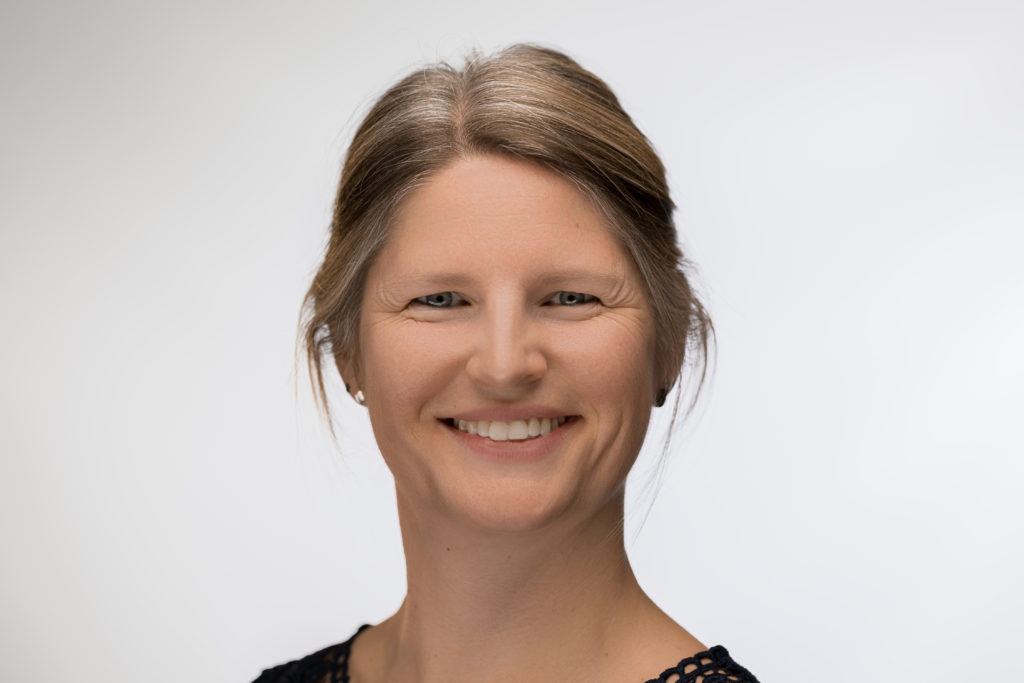Oriana Bandiera

Oriana Bandiera is the Programme Director of the G²LM|LIC Programme.
She is the Sir Anthony Atkinson Professor of Economics at the London School of Economics, and a fellow of the British Academy, the Econometric Society, CEPR, BREAD, and IZA. She is co-editor of Econometrica and vice-president of the European Economic Association.
Her research focuses on how monetary incentives and social relationships interact to shape individual choices within organisations, how this shapes labour markets, the allocation of talent, and, ultimately, living standards. Her research has been awarded the IZA Young Labor Economist Prize (2008), the Carlo Alberto Medal (2011), the Ester Boserup Prize (2018), and the Yrjö Jahnsson Award (2019). At the LSE she teaches the undergraduate Development Economics course, for which she won a Student Union Award in 2020.
Annabelle Krause-Pilatus

Annabelle Krause-Pilatus is the Deputy Programme Director of the G²LM|LIC Programme.
She is a Scientific Manager and Senior Research Associate at IZA. She studied economics and social psychology at the Ruhr-University Bochum and the University of Lausanne. After her graduation with a Master of Science in Economics in 2009, she joined IZA as a Resident Research Affiliate and became a Research Associate in September 2013. She received her Ph.D. degree in May 2013 from the Freie Universität Berlin.
Annabelle is in charge of managing and supervising the different activities of G²LM|LIC concerning research, policy outreach, and capacity building. Her research interests include labor economics, migration, and subjective well-being.
Sven Kleinert

Sven Kleinert is the Senior Administrator of the G²LM|LIC Programme.
He studied German Business Law at the University of Applied Sciences in Cologne and received his diploma in 2008. In 2010 he received his LL.M degree in International Economic Law from the University of Kent’s Brussels School of International Studies. In March 2011 Sven Kleinert joined IZA.
As Senior Manager for Project Administration and Legal Affairs, he is responsible for project management and general legal and contractual issues.
Viola Hartmann

Viola Hartmann is Head of Logistics of the G²LM|LIC Programme.
Viola Hartmann qualified in Project Management, Event Management and Public Relations. She studied Biology at Bonn University and received her diploma in 1999. After her studies, she worked for different institutions in the field of Event Management, Public Relations, Scientific Education and Development Aid in Germany and France. She joined IZA in the Summer of 2008.
Support
Harleen Kaur

Harleen Kaur is currently pursuing her Master’s degree in Economics at the University of Bonn. She joined IZA as a Student Assistant in November 2023 to support the G²LM|LIC team.
Valentine Ikelugo

Valentine Ikelugo is currently pursuing a Development Economics degree at Georg-August University Gottingen. He joined IZA in November 2023 as a Student Assistant, offering support to the G²LM|LIC team.
Advisory Board
The G²LM|LIC management is supported by an advisory board comprising a panel of seven world-renowned researchers who advise the team on strategic issues related to the programme’s research focus and capacity-building initiatives.
Kathleen G. Beegle

Kathleen Beegle is a Lead Economist in the Poverty, Inequality and Human Development Team of the World Bank’s Development Research Group. Her research experience includes the study of poverty, labor, economic shocks, and methodological studies on household survey data collection in developing countries. She is co-leading the new World Bank Center for Research on Women and Jobs. She has published widely in refereed journals, as well as co-leading flagship World Bank reports and co-authoring chapters in books. She is a regular blogger for the World Bank’s Development Impact blog. While at the World Bank, she was the Human Development Program Leader for Ghana, Liberia, and Sierra Leone, based in Accra, Ghana (2014-2018) and a Lead Economist with the Gender Group (2018-2021). She received her Ph.D. in Economics from Michigan State University and completed a post-doctoral fellowship at RAND. She has taught at Georgetown University.
Richard Blundell

Professor Sir Richard Blundell, CBE FBA holds the David Ricardo Chair of Political Economy at University College London where he was appointed Professor of Economics in 1984. He is Director of the ESRC Centre for the Microeconomic Analysis of Public Policy at the Institute for Fiscal Studies (IFS) IFS where he was been Research Director from 1986 until 2016. He holds Honorary Doctorates from the University of St.Gallen; Norwegian School of Economics NHH; University of Mannheim; Universita Della Svizzera; University of Bristol; and the University of Venice Ca’Foscari.
His published papers on microeconometrics, consumer behaviour, savings, labour supply, taxation, public finance, innovation, and inequality have appeared in the top academic journals. He was co-editor of Econometrica 1997-2001, and co-editor of the Journal of Econometrics 1992–1997. He is a founding editor of Microeconomic Insights. He was an editor and panel member of the IFS Mirrlees Review: Tax Reform for the 21stCentury. He is currently an editor and panel member of the IFS-Deaton Review: Inequality in the 21stCentury. He is a Fellow of the Econometric Society, the British Academy, the American Economic Association, the American Academy of Arts and Science, the Institute of Actuaries, and the National Academy of Science. He has been President of the European Economics Association; the Econometric Society; the Society of Labor Economics, and the Royal Economic Society. He was the recipient of the 1995 Yrjö Jahnsson Prize; the 2000 Frisch Prize; the 2008 Jean-Jacques Laffont Prize; the 2015 BBVA Foundation Frontiers of Knowledge Prize in Economics; the 2016 Erwin Plein Nemmers Prize in Economics; and the 2020 Jacob Mincer Prize in Labor Economics.
Markus P. Goldstein

Markus Goldstein is a lead economist in the Office of the Chief Economist’s Office for Africa at the World Bank, where he leads the Gender Innovation Lab. A development economist with experience working in Sub-Saharan Africa, East Asia, and South Asia, his current research centers on issues of gender and economic activity, focusing on agriculture and small-scale enterprises. He is currently involved in several impact evaluations on these topics across Africa.
Goldstein has taught at the London School of Economics, the University of Ghana, Legon, and Georgetown University. He holds a PhD from the University of California, Berkeley.
David Lam

David Lam is the founding director of the G²LM|LIC programme and served as Programme Director from 2011–2019.
He is a Professor in the Department of Economics and a Research Professor in the Population Studies Center, University of Michigan. He earned an MA in Demography in 1982 and a PhD in Economics in 1983 at the University of California, Berkeley.
David was elected to serve as the 2011 President of the Population Association of America. He has provided his expertise in economic demography in several capacities, including as chair of the NSF Oversight Board of the IPUMS-International project, and as an advisor, consultant, and organizer for the World Bank, the United Nations Population Division, the Inter-American Development Bank, and the South Africa Office of the Presidency.
David is a leading researcher on the economic demography of inequality, especially applied analysis of inequality in developing countries. His research is wide-ranging, including publications in the areas of income and wages, education, unemployment, child labour, fertility, sexual behaviour of youth, intergenerational effects of HIV/AIDS, and cohort size in demographic transitions.
Shelly J. Lundberg

Shelly J. Lundberg is a Distinguished Professor of Economics and Leonard Broom Professor of Demography at the University of California, Santa Barbara. She is also the Associate Director, Broom Center for Demography, UCSB, and a Research Fellow at IZA. She has been a Visiting Scholar at the Russell Sage Foundation, Visiting Associate Professor at the Department of Economics, Princeton University, and a National Fellow at the Hoover Institution, Stanford University. She has also served as an Assistant Professor at the University of Pennsylvania and in different academic positions at the University of Washington. She has been awarded the Doctorate Honoris Causa by the University of Bergen in 2012, a Downing Fellow by the University of Melbourne in 2010, and the American Economic Association Distinguished Fellow in 2020. She was awarded a PhD in Economics from the Northwestern University in 1981.
Imran Matin

Imran Matin leads BIGD with the intent to transform the organisation into a globally-recognized centre for rigorous research on policy and development interventions. Matin provides strategic direction and oversees strategy implementation for advancing BIGD’s mission; expands and nurtures critical stakeholder relationships; and is responsible for the overall management of human, financial, and physical resources.
Dr. Matin is a Visiting Fellow of the Suntory and Toyota International Centres for Economics and Related Disciplines (STICERD) at the London School of Economics and Political Science (LSE). He additionally serves as the Country Director of the International Growth Centre (IGC) in Bangladesh. He holds a PhD in Economics from the University of Sussex, UK.
Barbara Petrongolo

Barbara Petrongolo is a Professor of Economics at the University of Oxford and a Professorial Fellow at Nuffield College. She is the Director of the CEPR Labour Economics Programme and Research Associate at the Centre for Economic Performance of the London School of Economics. She previously held positions at the Queen Mary University of London, the London School of Economics, the Paris School of Economics, and the University of Carlos III (Madrid). She is currently managing co-editor of the Economic Journal. Her primary research interests are in labour economics. She has worked extensively on the performance of labour markets with job search frictions, with applications to unemployment dynamics, welfare policy, and interdependencies across local labour markets. Her work also researches the causes of gender inequalities in labour market outcomes, from a historical perspective and across countries, with emphasis on the role of employment selection mechanisms, structural transformation, and interactions within the household.